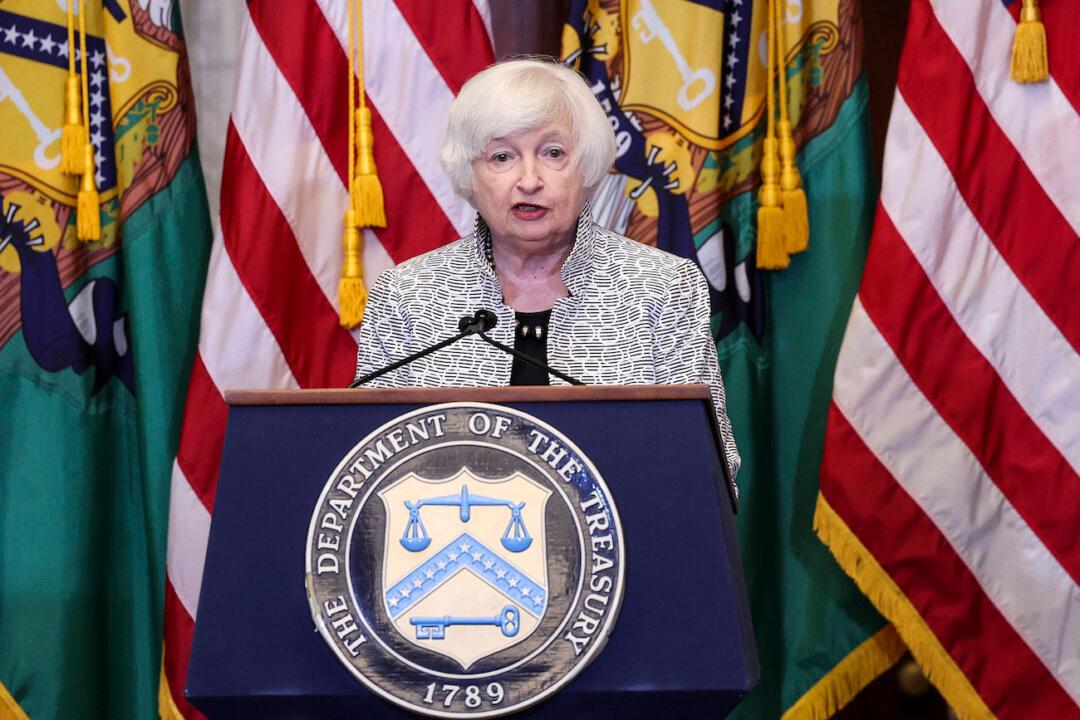Treasury Secretary Janet Yellen announced Sunday that the federal government wouldn’t bail out the now-collapsed Silicon Valley Bank (SVB) but said it will work to aid depositors who are worried about their money.
During a Sunday interview with CBS News’ “Face the Nation,” Yellen did not provide many concrete details about what her agency or what the Federal Deposit Insurance Corporation might do to protect depositors’ cash. But the Treasury secretary, formerly an Obama-era Federal Reserve chair, emphasized that SVB’s situation was different than the financial crisis that erupted in 2008, which led to widespread bailouts of financial companies in what government officials at the time said was designed to protect the industry and larger U.S. economy.





